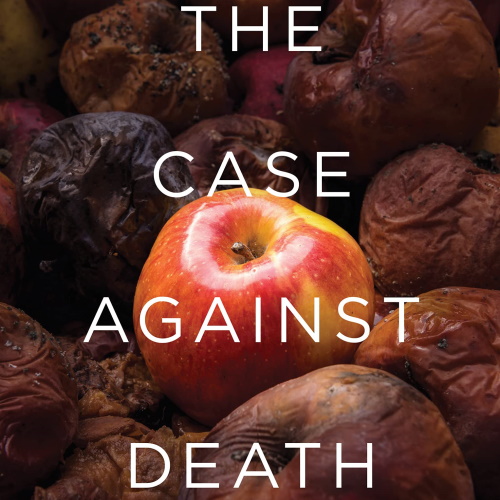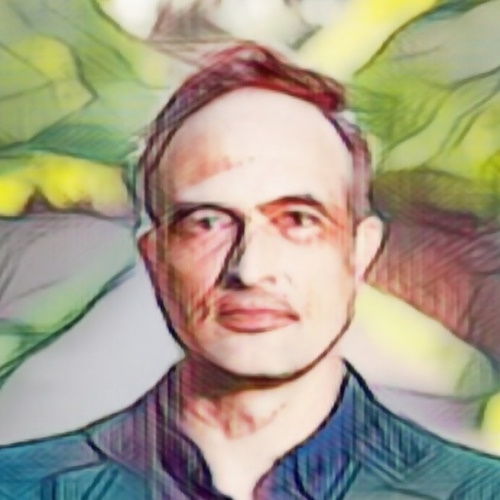The Case Against Death
Book written by philosopher Ingemar Patrick Linden
A philosopher refutes our culturally embedded acceptance of death, arguing instead for the desirability of anti-aging science and radical life extension.
Ingemar Patrick Linden's central claim is that death is evil. In this first comprehensive refutation of the most common arguments in favor of human mortality, he writes passionately in favor of antiaging science and radical life extension. We may be on the cusp of a new human condition where scientists seek to break through the arbitrarily set age limit of human existence to address aging as an illness that can be cured. The book, however, is not about the science and technology of life extension but whether we should want more life. For Linden, the answer is a loud and clear “yes.”
The Case Against Death Book Review
The Case Against Death by Ingemar Patrick Linden is a thought-provoking and compelling exploration of the philosophical, ethical, and scientific arguments for radically extending human life. Linden challenges the notion that death is an inevitable or even desirable part of existence, making a persuasive case for the pursuit of life extension technologies.
The book delves into some heavyweight philosophy, most of which isn't considered by the average person, however, it is generally at the right level for the average reader to understand. It provides many counter arguments to the, often, immediate and irrational defence of death, which will need to be highlighted regularly to persuade the general public that even if the cure for ageing has not yet arrived it is still worth supporting. This book is a must-read for anyone intrigued by the possibilities of a future where ageing and death are no longer inevitable.
Key points
You really need to read the book in full to let the arguments sink in, but if you don't have time (or want to decide whether it's worth the time) then here are 95 highlights from Ingemar Patrick Linden's book.
- If we could live in good health to 120 or 200 or 1,000 or indefinitely, would this be good?
- I am a death abolitionist and a life prolongevist.
- The acceptance of death is deeply embedded in our cultures.
- Apologism: The belief that prolongevity is neither possible nor desirable.
- Leon Kass, the former chairman of the President’s Council on Bioethics, writes that death “is a blessing for every human individual, whether he knows it or not,”
- Thanatophobia, the fear of death, is, according to the mental health profession, no more rational than a fear of spiders, open spaces, or clowns.
- In a Pew Research study, 96 percent said they wanted to die before 120.
- Why do we say we want to age and die, while at the same time spend so much on appearing young and staying alive?
- Believing in an afterlife does not dampen the interest in prolonging this life.
- We protect ourselves from the awfulness of death by telling a story that makes sense of it as a beautiful and fitting end to a full life.
- Death is a form of unfreedom.
- True courage in the face of mortality is not to pretend that it is a blessing.
- It is bad to die because it robs a person of all the goods (e.g. valued experiences, personal relationships) one would have enjoyed if one had continued to live.
- The badness of death is explained in terms of what the dead person misses out on by not being alive.
- Aging, as I like to think of it, is a drawn out dying.
- Slowing or stopping aging would be the best thing we can do for the relief of human suffering.
- There is, of course, no denying the naturalness of aging, but there is also no reason to think that this makes it a good thing.
- The wisdom and maturity attained by some is a product of experience and reflection over time, not to mention good luck and intelligent friends; it is not a result of aging.
- When looking closer at the statistics for those 60 and over, we see that it is those who are the least impaired who are the happiest.
- Insofar as older people are happy, it is not because of aging, but despite aging.
- Age-related frailties often prevent us from performing some activity that we take pride in, have developed excellence in, and even see as a part of who we are.
- The only way to avoid cancer is to die from some other illness before it gets you.
- Normality does not imply that something is not a disease.
- Several currently recognized diseases were in the past ascribed to normal aging.
- The many who tell themselves and others that they prefer aging over youth will change their tune once the reality of antiaging medicine imposes itself.
- Death occasions the greatest possible opportunity cost because it excludes all other options.
- Epicurus aims to tame death and manage the terror it causes in sensitive minds.
- The only way to care less about death is to care less about life.
- Existential pessimism holds that even if we find solutions to many of our social challenges, being human is so hard that death is a blessing,
- Schopenhauer, Plato, and the Buddha, are important examples of thinkers whose philosophies locate the tragedy and suffering of life in our desires.
- The philosopher’s dream of escaping the demands of our desires is a neurotic’s fantasy, a way of dealing with frustration in an uncertain world.
- Apologists for death recognize that we have a natural instinct to live.
- There has been no discussion concerning whether it is logically or metaphysically impossible to double the lifespan of a mouse or a roundworm because the life span somehow “defines” these creatures.
- Our desire for self-preservation is more in tune with our human nature than death-loving, regressive bioconservatism.
- Björn Borg retired at 26 in 1983 and Roger Federer has yet to retire at the age of 39 (as of 2021).
- There must, I think, be something wrong with someone who cannot imagine anything they would rather do after 90 or 100 or 110, if in decent health, than be dead.
- Anyone who has the same personality after 300 years has probably been wasting their time.
- We know that we are going to die, but we also cannot fully imagine it.
- The belief in our mortality is simply too foggy in most minds for us to expect that it serves a necessary role in our motivational psychology.
- Pain, suffering, and discomfort — a repellent state — would continue to be a spur in a state of infinitude.
- Young children have no thoughts of death yet suffer no procrastination and despondency.
- People settle into mediocrity because they feel that there is not enough time to change track.
- The stakes are higher when you risk eternal punishment rather than simply death.
- Moral virtue does not generally depend on the threat of death.
- Existence is a miracle and not something to throw away after a couple of decades.
- The rebel’s naive insistence that youth and life is much better is an unwelcome threat to the anxiety-reducing truce that has been made with death.
- Responses to, say, a beautiful face, are instinctive and would not invariably trigger thoughts of one’s own mortality.
- Temporary objects of beauty such as table arrangements, ice art, fireworks, and so on, cannot be explained in terms of wanting to create something that outlasts us.
- In 1970, the global average number of children per woman was 4.3. Today, it is down to roughly 2.5.
- Half of the earth’s population already lives in countries with below-replacement levels of fertility.
- UN forecast factors in an increase of our life expectancy from a current age of 72.6 years to 82.6 years in 2100.
- Japan is expected to lose between one third and two thirds of its population by 2100 ... at the same time that it continues to lead the world in average life expectancy with 93.7 years.
- The global average child mortality rate in 1800 was 43.3 percent... today only three in 100 do not see their fifth birthday.
- 10 of the most important reasons for why modernity brings us a longer life and also creates a world where women have fewer children.
- If some members of society reject to use new anti-aging technologies for some religious or any other reasons
- even in the case of the most radical life extension scenario, population growth could be relatively slow.
- The greatest challenge with regard to antiaging treatments and population growth will be in the early stage.
- Ee have more than doubled the average life expectancy since 1900, yet the populations of most countries are stable or even shrinking.
- Accepting a restraint on how many children we have in exchange for a longer, healthier life is not an unacceptable solution.
- Water is not like coal or some other finite resource; we are never going to use up water.
- The proportion of deaths due to starvation dropped from 194.6 per 100.000 over the first decade of the last century to 3.3 per 100.000 over the first decade of this century.
- Population growth has coincided with an increase in access to food.
- The amount of land needed to feed the world is, therefore, not much more than it was 50 years ago [due to efficiency].
- In 2020, US solar energy capacity had increased sixty-five fold to 78,986 MWh per year.
- Every country that has gone through a successful industrial revolution has also gradually managed to improve its environment.
- It is appalling how quick people are to suggest — as a first answer — that we should die to save water, food, oil, or to make the world less hot or less polluted.
- Today the global average potential support ratio (PSR) has declined to eight and it is projected to decline to four by 2050.
- Japan is projected to shrink from 127 million to 100 million inhabitants by 2050.
- Wealth today is not created by having a large labor force but by having a highly productive labor force.
- A government study in Japan has shown that seven in 10 workers over 60 want to continue to work.
- In Iceland, which tops the list, nearly 40 percent of those 65 and older still work.
- Our social stereotypes of what it means to be old are unfair, outdated, economically counterproductive.
- Rather than advocating for getting rid of the old, as many of our foremost bioethicists do, we should help each other to achieve our potential regardless of age.
- Most CEOs are often replaced after four to five years.
- Much work is organized as networks of independent contractors in which age-graded hierarchies have no relevance.
- If old executives cease to perform well, they are fired or their company flounders against its competition.
- Paradigms do not die with their creator and one paradigm does not have to die to create room for another.
- The aging of a society has so far not hampered intellectual vigor and progress.
- Intellectual production could simply explode, as experience combines with youthful energy.
- Youth can be so dangerously self-righteous in their beliefs because they have no real-life experience to contradict them.
- Whom do you trust more to make political decisions, your current self or your younger self?
- Many strongmen have been deposed before their natural death (e.g. Saddam Hussein, Pol Pot, Idi Amin, Nicolai Ceausesca).
- It is also incorrect to assume that the natural death of a ruler marks the end of an oppressive regime (e.g. Raoul Castro continued his brother's legacy in Cuba, and the Kim dynasty in North Korea).
- None of the challenges posed by life extension discussed above are beyond our powers to solve and none of them are worse than the current state of aging and death.
- Let the billionaires have it. It would in no way hurt us. We would not live a shorter time if Elon Musk, Bill Gates, Larry Ellison, Peter Thiel, and Warren Buffet lived longer.
- Generally, the distress of seeing someone else with something that I want is something to overcome and cannot by itself count as a moral reason for denying this person this something,
- The strongest reason for optimism that we will find reasonable principles of distribution is probably that there is a strong financial imperative from the point of view of the state to encourage its development and universal distribution.
- It is hard to make sense of an insistence that everyone ought to have access to something that one also considers a bad thing for them.
- We have good reason to progress with life extension even before all other healthcare needs have been met for all.
- If we find a way to stave off death, we will take it, whether it is a road to salvation or a road to perdition.
- I believe that much of the resistance stems from the feeling that aging is impossible to cure.
- Antiaging medicine is likely to gradually assimilate with accepted life-extending technologies such as vaccinations, antibiotics, and preventive medicine in general.
- I am not prepared to die for the GDP
- A recent study of Canadians shows that 59 percent would want to live to 120 if science made it possible to do so in good health.
- The thought that there is healthy aging is arguably the deadliest idea in the world since it guides the insane misallocation of resources.
Visit website: https://mitpress.mit.edu/books/case-against-death
Details last updated 21-Jan-2022
The Case Against Death is also referenced in the following:
The future of thinking about death
26-Feb-2022
Philosopher Ingemar Patrick Linden talks about his new book, The Case Against Death, at this London Futurists online event (FREE)






